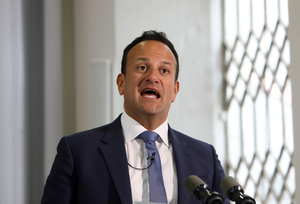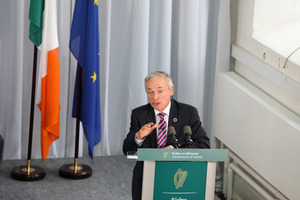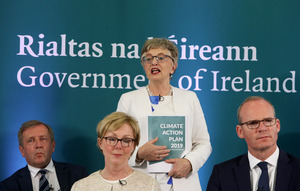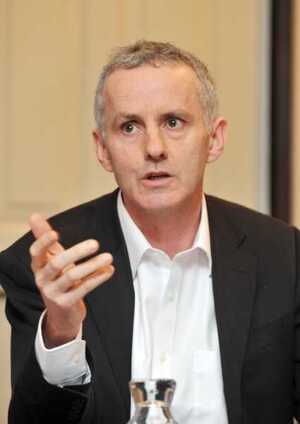Graphic on the Green Party website
This afternoon.
Further to Green Party leader and TD Eamon Ryan’s comments about carpooling in rural Irish villages on Ireland AM on Wednesday…
And the subsequent reporting of his comments on The Irish Times yesterday…
The party has released the following statement:
“By now you’ve probably read the headline that Eamon Ryan wants to restrict cars in rural Ireland.
This headline has caused a flood of online fury – and rightly so, because a suggestion like that would be ridiculous and impractical. It would be tone-deaf to needs of our rural communities, and frankly insulting to people who are dealing with a total lack of any public transport on a daily basis.
But the truth is – this headline is totally inaccurate.
The Green Party does not stand for restricting car ownership, and to state otherwise is a huge misrepresentation of the party position and of Eamon’s comments.
What Eamon Ryan proposed was that car sharing could provide people in rural Ireland with extra options.
So cars AND car sharing.
The reason for this is simple. Lack of investment in rural transport means thousands of people are locked-in to car dependency. Meanwhile, thousands of young people have been locked-out of car ownership in rural Ireland because of sky-high insurance costs. People want and need options. They need a way of getting around that is much cheaper and may provide an alternative to the cost of owning and running one or more cars.
Car sharing schemes won’t work everywhere or for everyone, but there are rural communities who are already doing this. In Cahersiveen, locals have started a carpooling group, and Clare County Council are piloting a scheme as part of their Rural Development Strategy.
So what are the facts?
The fact is, the Green Party are the ONLY party proposing major public transport investment in rural Ireland, and we were the ONLY party to discuss our commitment to rural transport at our budget launch.
In our budget submission, we committed almost half a billion Euro to public transport. We are the only party with a costed budget to come anywhere close to the level of investment and ambition that will make an impact for people in rural areas.
That means new bus routes serving communities and areas that have never been served before.
It means a big increase in frequency of services on existing routes.
It means cheaper fares.
It means options.
And the Green Party proposal is for sustained investment at that level.
We deeply regret the hurt that has been caused to rural communities. We are facing a climate emergency, and the impact of that will disproportionately hit rural areas.
We want to prevent that. Carpooling is one idea that might work for some people in some areas. It’s not Green Party policy. It’s not even a Green Party idea – carpooling was debated by the Joint Oireachtas Committee on Climate Action, where Fine Gael, Fianna Fáil and Labour all voted in favour.
When it comes to climate change, people in rural Ireland are sometimes made to feel like they are part of the problem. Rural Ireland is not part of the problem, but by investing significantly in rural communities, we believe rural Ireland can become a big part of the solution.’
OK.
Everyone stay cool.
*revs up welly-strewn Passat*
FIGHT!!
Earlier: Rota This
Previously: It Takes A Village
Meanwhile…
Dublin Green Party MEP Ciaran Cuffe tweetz:
Like to join me on a whistle-stop bike tour of decent public housing in Dublin tomorrow?
The bike tour will take place from 2pm until 4pm tomorrow, leaving from The Tram Café, Wolf Tone Square, Jervis Street, Dublin 1.














